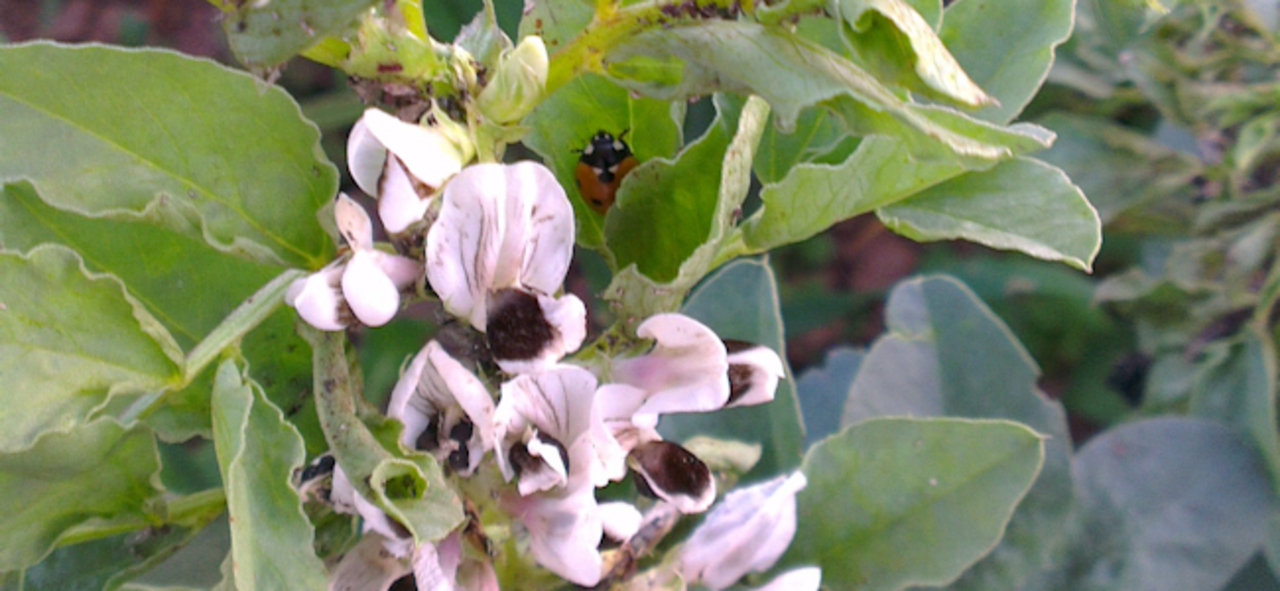Project
RELEVANT

Regulating ecosystem services in crop rotations with field bean (Vicia faba) and pea (Pisum sativum): quantification, assessment and realisation
In RELEVANT, the effect of crop diversification with field bean and pea on the diversity of pollinators and epigeic predatory arthropods and the ecosystem services provided by those are quantified and assessed.
Background and Objective
The objective of RELEVANT is to assess the impact of the diversification of cropping systems through field bean and pea on pollinating insects and epigeic predatory arthropods. Changes in the diversity and abundance of those species groups as well as in delivery of ecosystem services (pollination and biocontrol) are quantified and followed by an economic assessment.
In collaboration with the demonstration farm network DemoNetErBo, pathways for transitions of conventional farming towards intelligent crop rotation management including the legumes are elaborated.
Target Group
- agriculture
- farm advisors
- agroecology
- agro-environmental policy
- crop production
Approach
RELEVANT is an interdisciplinary R&D project, which is the first to study and quantify the effects of diversified crop rotations, that consequently include pea (Pisum sativum) and/or faba bean (Vicia faba), on biodiversity, ecosystem services and economic performance.
Pollinators and pollination are studied by the University of Göttingen, epigeic predatory arthropods and pest control are studied by the Thünen Institute of Biodiversity. The FH Südwestfalen is responsible for the economic assessment.
Data and Methods
Diversity and abundance of pollinators and biocontrol agents are assessed at the landscape scale. Land-use stratified sampling is conducted in 1 x 1 km areas with a matched-pair design covering either diversified or conventional cropping systems.
Our Research Questions
Our field studies and experiments will allow us to test the following hypotheses:
- Faba bean and peas promote pollinators and ground dwelling arthropods such as predators of agricultural pests. This increases the delivery of regulating ecosystem services due to
- legume specific traits (N-fixation, flowering)
- adapted management
- and /or diversified crop rotation
- Pea and faba bean cropping improves the food availability for pollinators and predatory arthropods and their reproduction rate
- Pollination and natural pest control will be significantly enhanced in the succeeding and neighbouring crops
Links and Downloads
www.demoneterbo.agrarpraxisforschung.de
www.dafa.de/fileadmin/dam_uploads/images/Fachforen/ff_leguminosen-kurzfassung-2012.pdf
Thünen-Contact

Involved external Thünen-Partners
- Georg-August-Universität Göttingen
(Göttingen, Deutschland) -
Fachhochschule Südwestfalen
(Soest, Deutschland)
Funding Body
-
Federal Office for Agriculture and Food (BLE)
(national, öffentlich)
Duration
3.2017 - 12.2020
More Information
Project status:
finished

![[Translate to English:] [Translate to English:]](/media/_processed_/e/3/csm_Demetra2_c8a192c0f8.jpg)
![[Translate to English:] [Translate to English:]](/media/_processed_/e/2/csm_Demetra1_Panorama_8557ee3b13.jpg)




